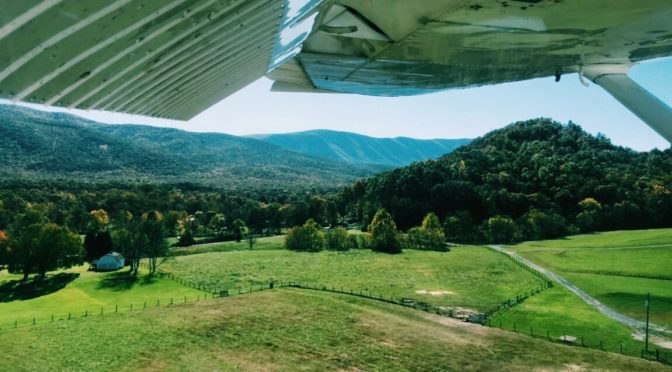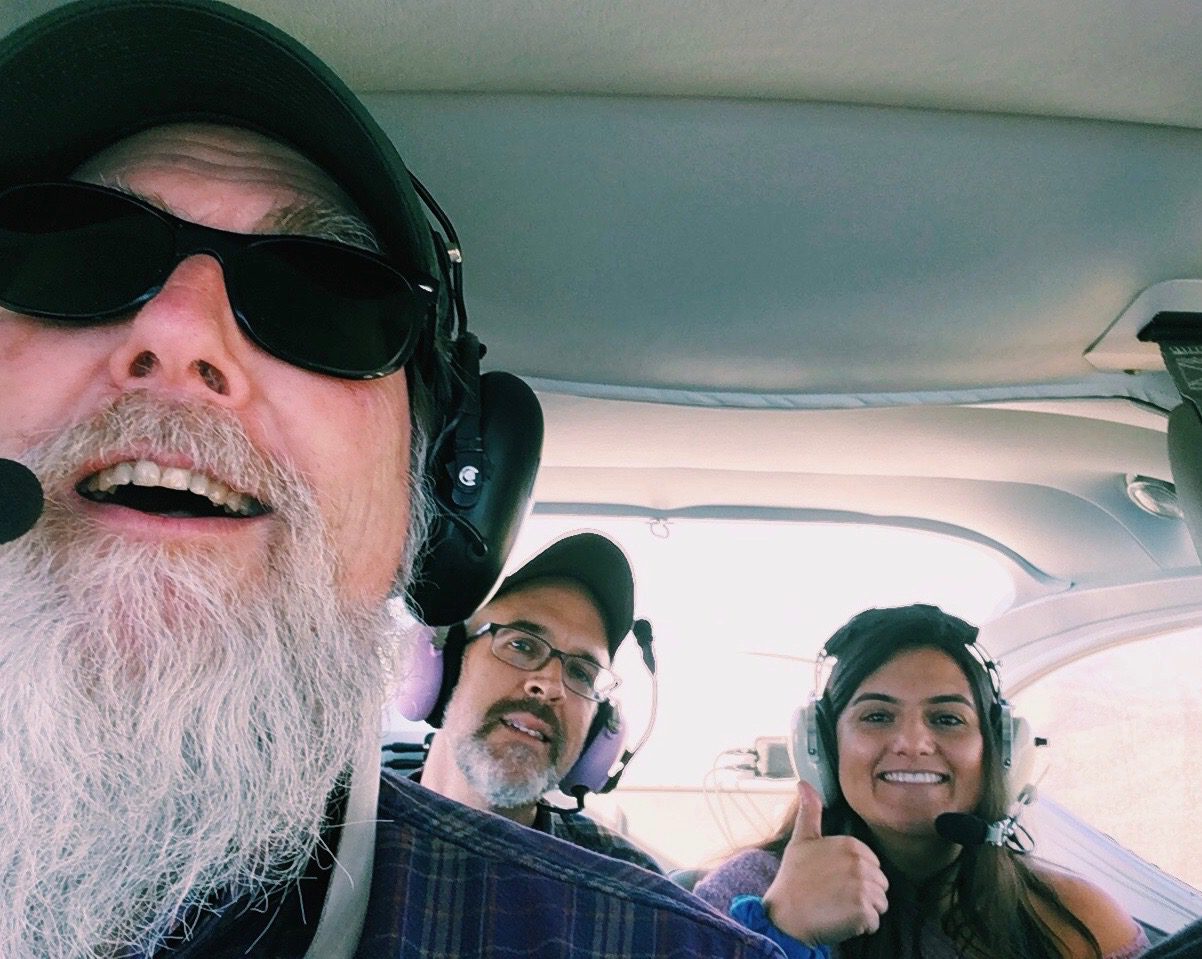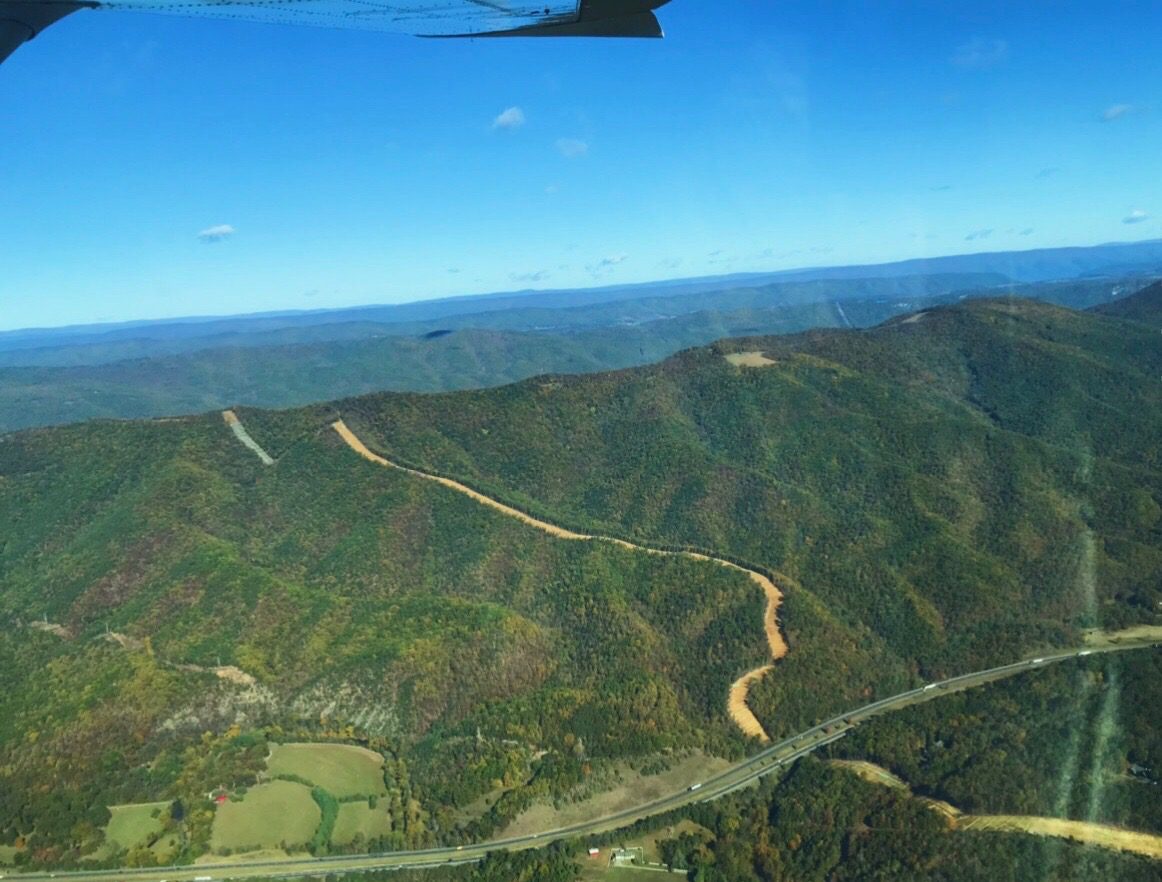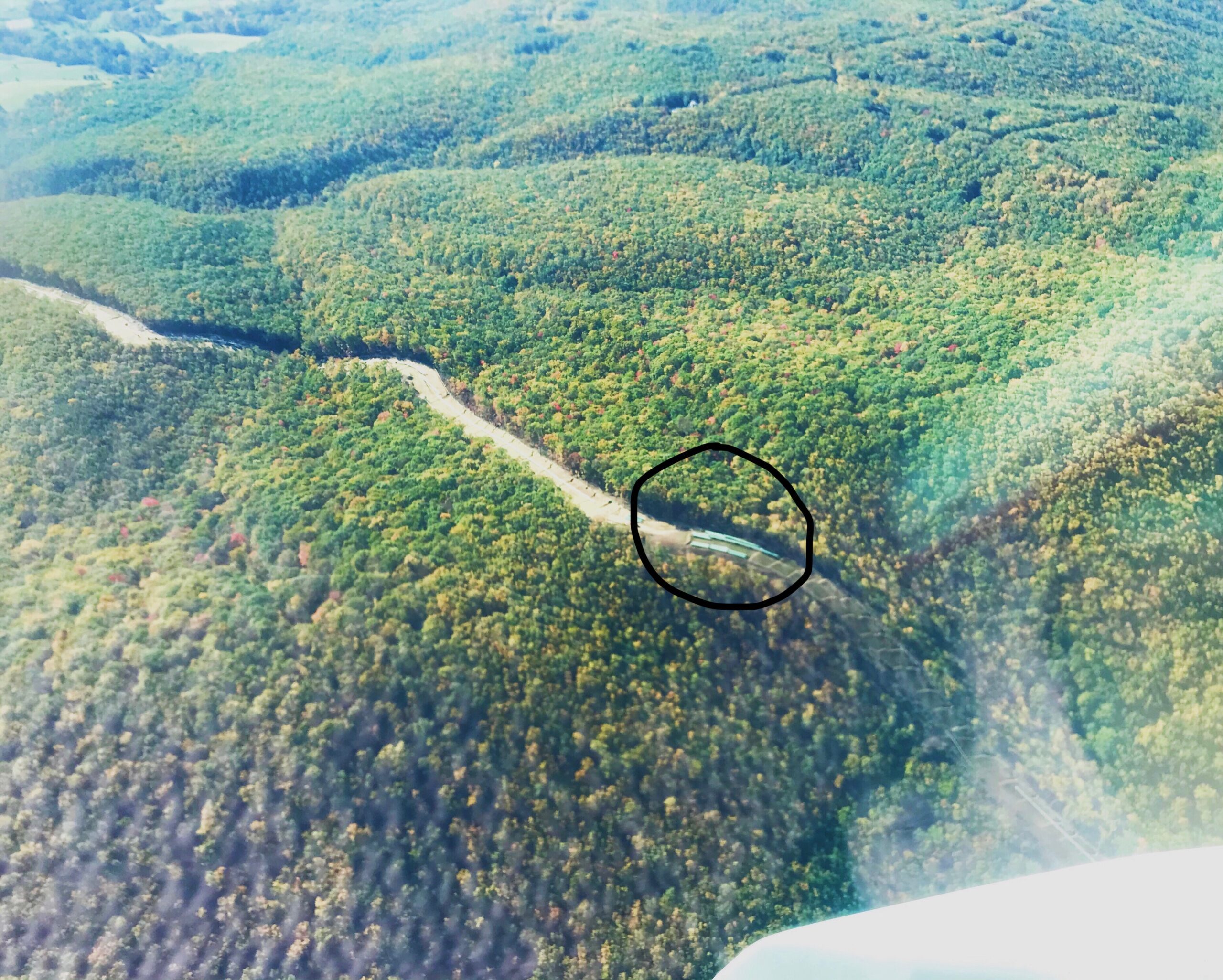
Aerial View of the Mountain Valley Pipeline
By Riley Mitchell
On October 23rd, 2019, I drove to a breathtaking piece of land in Natural Bridge, Virginia for an unprecedented adventure (for me, at least). The property, which included a beautiful home, a barn, farmland and an airstrip, belongs to volunteer pilot Don Jeffer, a Southwings pilot that agreed to fly David Sligh, Ned Oliver and myself over the Mountain Valley Pipeline (MVP) route for a view from his four person plane. Don considers flying to be a passion, while his wife thinks “obsession” is a more appropriate term. Regardless of what you call it, his love for this hobby comforted me as I started to think about the fact that I had never been in a small plane before. We boarded (or climbed into, rather) the plane pictured below and were each handed a headset to wear throughout the flight. Soon after, Don pulled onto the airstrip and within 45 seconds we were in the air.
Left to right: David Sligh, Ned Oliver, Riley Mitchell in Don Jeffer’s plane

The scenery from the plane was absolutely stunning, especially given the clear skies, bright sun, and fall foliage. For the next 15 minutes we floated over the mountains, taking in the picturesque view and attempting to talk loud enough to hear one another. We then reached the route for the Mountain Valley Pipeline, which disturbingly juxtaposes the natural environment it is surrounded by. Throughout the flight, we all lended our ear to David as he described what we were observing over the sound of the plane’s engine.
The absence of any heavy machinery along the route was comforting to all of us as the court had recently stayed an important federal permit and FERC had ordered that MVP stop any construction for the time being. There was significant concern that installation of pipeline would continue under the guise of “stabilization,” so our eyes were peeled for any illegal activity. While this aspect of the trip was uplifting, it was impossible to overlook the way in which MVP’s past activity has adversely affected the land. In addition to the way construction has degraded the aesthetic quality of this area, the land itself has also been degraded. These projects significantly decrease soil quality and promote erosion along the route, which has effects far beyond the route itself. For example, this can lead to sedimentation in streams which affects myriad aquatic species as well as water quality in general.
By the end of the flight, we had covered all of the route in Virginia as well as a portion in West Virginia. The view of the Mountain Valley pipeline’s route was admittedly disheartening, but the aerial view also proved that this fight is far from over as it was very clear that there is still much work to be done on this pipeline. In spite of MVP’s claim that the vast majority of the project is complete, we saw many instances of pipe that has yet to be put in the ground (circled below). In the words of David Sligh, MVP’s estimate of the project’s level of completion is “misleading at best.” That being said, it is imperative that individuals, organizations, and communities continue to take action against this unjust, unnecessary project so that construction does not continue.
If you’re interested in getting involved and amplifying your voice against MVP and fracking in general, consider becoming a member of Wild Virginia! Additionally, we encourage you to visit our What Can You Do page if you want for more information. Lastly, share what you learn with friends and family to further strengthen the fight against environmental injustice!


